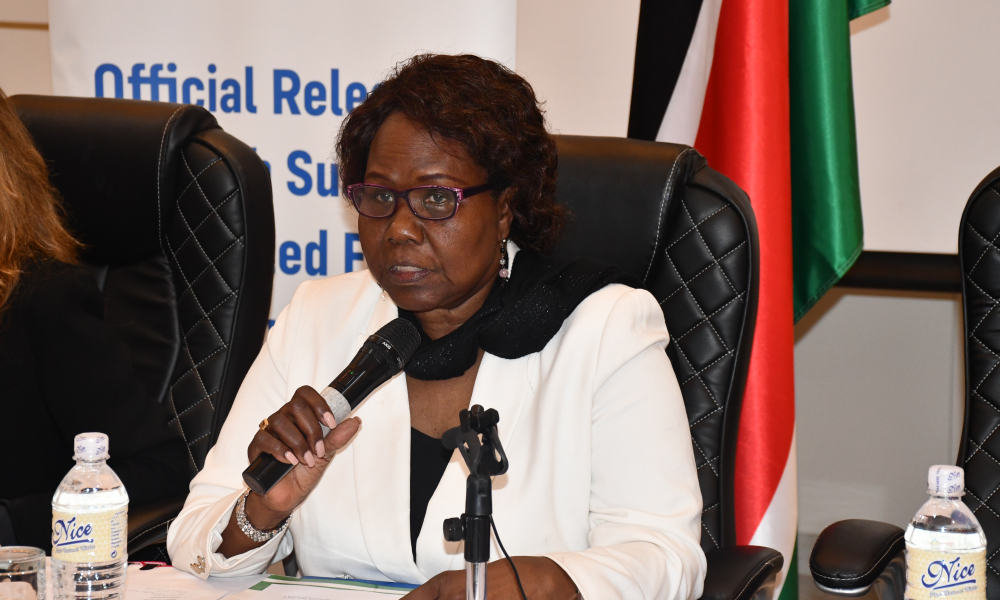By Mamer Abraham
National Minister of Agriculture and Food Security, Josephine Lagu, has called for an increased budget for her ministry to address food insecurity across the country.
This came after the UN Food and Agriculture Organization (UNFAO), the World Food Programme (WFP), and UNICEF launched the South Sudan IPC Report 2023 in Juba yesterday, detailing that 5.78 million people will face acute food insecurity next year.
“The government can also improve and increase the budgetary allocation to the agriculture sector in line with the Maputo declaration,” said the minister.
“We also have a plan to activate the Food Security Council. I’ve already presented my memo to the Minister for Cabinet Affairs to that effect. So, we’ll do what we can as a ministry and as line ministries to ensure that we bring the gravity of this situation to the full attention of our government.”
She promised to present the issue to the council of ministers, adding that the relevant ministries had already developed what she termed the country’s compact as the right means of addressing food insecurity across the country.
“I think rightly so that the government must take its responsibility first and foremost to ensure that, you know, the people of South Sudan don’t continue to suffer from food insecurity,” she explained.
“And we believe that if this country puts resources into the implementation of the country compact, we should be able to deal with food insecurity over the next couple of years. It’s doable. And I encourage our development partners to have a copy of the country compact if you haven’t got one already.”
Josephine argued that humanitarian assistance was very much needed in the meantime but might not help the country out as soon as possible.
“Let us put more resources into development activities. Yes, humanitarian support is needed, but ultimately, humanitarian assistance will not help this country come out of food insecurity. It is the implementation of the country compact that will do so,” she stressed.
Last month, some of the approximately 105,000 returnees currently settled in Northern Bahr El Ghazal State complained of being neglected for over three months without food assistance, as only 16,000 returnees were receiving food.
This came after the state government came up with the plan to allow the returnees to integrate into the communities to be assisted by their relatives and not mix them with refugees.
One of these women was Abuk Kom, 38, a mother of four children who resorted to brewing local wine to make a living with her family.
“I have been here for three months without receiving food since I came. I only received soap and a bucket, but no food,” she complained.
Guot Guot Ayiei, who sells charcoal in Aweil, confirmed that some of them had not received food for three months and threatened to return his children to Sudan should the government fail to distribute food to them.
“We came here from Khartoum not to die. Now some people have received it while others have not. Now, if I spend 2 to 3 days more, I might take my children, even if they go and die. What shall I do again?” he added.
However, Angelo Deng Akol, deputy chairperson of the Relief and Rehabilitation Commission in Northern Bahr El Ghazal State, revealed that many returnees failed to acquire ration cards at the Renk border and were still using unfunctional ration cards from Sudan.




